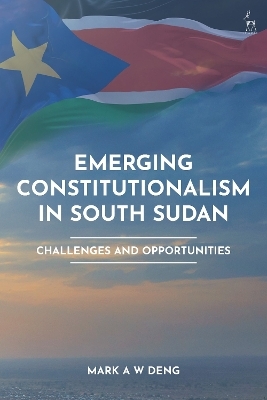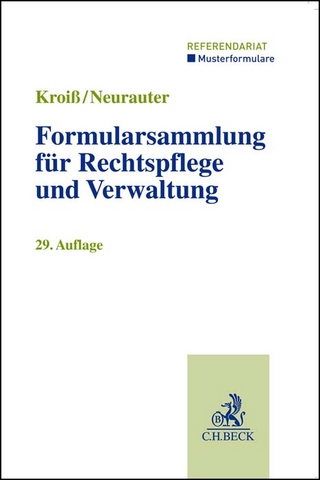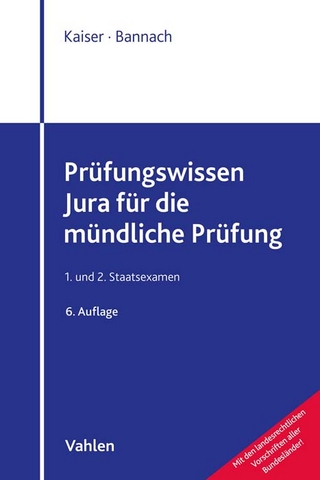
Emerging Constitutionalism in South Sudan
Challenges and Opportunities
Seiten
2025
Hart Publishing (Verlag)
978-1-5099-8127-4 (ISBN)
Hart Publishing (Verlag)
978-1-5099-8127-4 (ISBN)
- Noch nicht erschienen (ca. September 2025)
- Versandkostenfrei innerhalb Deutschlands
- Auch auf Rechnung
- Verfügbarkeit in der Filiale vor Ort prüfen
- Artikel merken
Offers the first in-depth analysis of the emerging constitutionalism and challenges in South Sudan.
This book offers the first ever in-depth analysis of the emerging constitutionalism in South Sudan and the challenges it faces.
The book critically analyses the constitution-making processes that occurred in South Sudan between 2005 and 2011, finding, among other things, that there was a failure of constitutional discourse, particularly in relation to the 2011 drafting process of the Transitional Constitution.
It goes on to analyse how the constitution is being implemented. It finds that, despite the clear division of powers and functions between the national government and the sub-national governments, what has emerged in South Sudan in the post-constitution-making period is a form of coercive centralism where the national government controls much of the political decision-making process. This has had serious implications for democracy, constitutionalism, and the rule of law.
Finally, bearing in mind the failure in both how the Transitional Constitution was made and how it is being implemented, the book undertakes a critical analysis of the proposed process for drafting a new constitution for South Sudan. It identifies serious shortcomings and proposes how these could be addressed to enhance the process.
This book offers the first ever in-depth analysis of the emerging constitutionalism in South Sudan and the challenges it faces.
The book critically analyses the constitution-making processes that occurred in South Sudan between 2005 and 2011, finding, among other things, that there was a failure of constitutional discourse, particularly in relation to the 2011 drafting process of the Transitional Constitution.
It goes on to analyse how the constitution is being implemented. It finds that, despite the clear division of powers and functions between the national government and the sub-national governments, what has emerged in South Sudan in the post-constitution-making period is a form of coercive centralism where the national government controls much of the political decision-making process. This has had serious implications for democracy, constitutionalism, and the rule of law.
Finally, bearing in mind the failure in both how the Transitional Constitution was made and how it is being implemented, the book undertakes a critical analysis of the proposed process for drafting a new constitution for South Sudan. It identifies serious shortcomings and proposes how these could be addressed to enhance the process.
Mark A W Deng is McKenzie Postdoctoral Research Fellow at Melbourne Law School, the University of Melbourne, Australia.
1. Governing a New Nation: A Task More Demanding than Waging the Liberation War
2. Transitional Constitution-Making in South Sudan: Failure and Lessons
3. South Sudan’s Electoral System in Overview
4. The Political Organs of South Sudan’s National Government
5. The Judiciary of South Sudan: A Toothless Institution?
6. The Sub-National Governments of South Sudan
7. Women's Rights under the Transitional Constitution
8. Permanent Constitution-Making in South Sudan: A More Tight Process
9. Bringing it All Together
| Erscheint lt. Verlag | 4.9.2025 |
|---|---|
| Verlagsort | Oxford |
| Sprache | englisch |
| Maße | 156 x 234 mm |
| Themenwelt | Recht / Steuern ► Allgemeines / Lexika |
| Recht / Steuern ► EU / Internationales Recht | |
| Recht / Steuern ► Öffentliches Recht | |
| ISBN-10 | 1-5099-8127-6 / 1509981276 |
| ISBN-13 | 978-1-5099-8127-4 / 9781509981274 |
| Zustand | Neuware |
| Haben Sie eine Frage zum Produkt? |
Mehr entdecken
aus dem Bereich
aus dem Bereich


